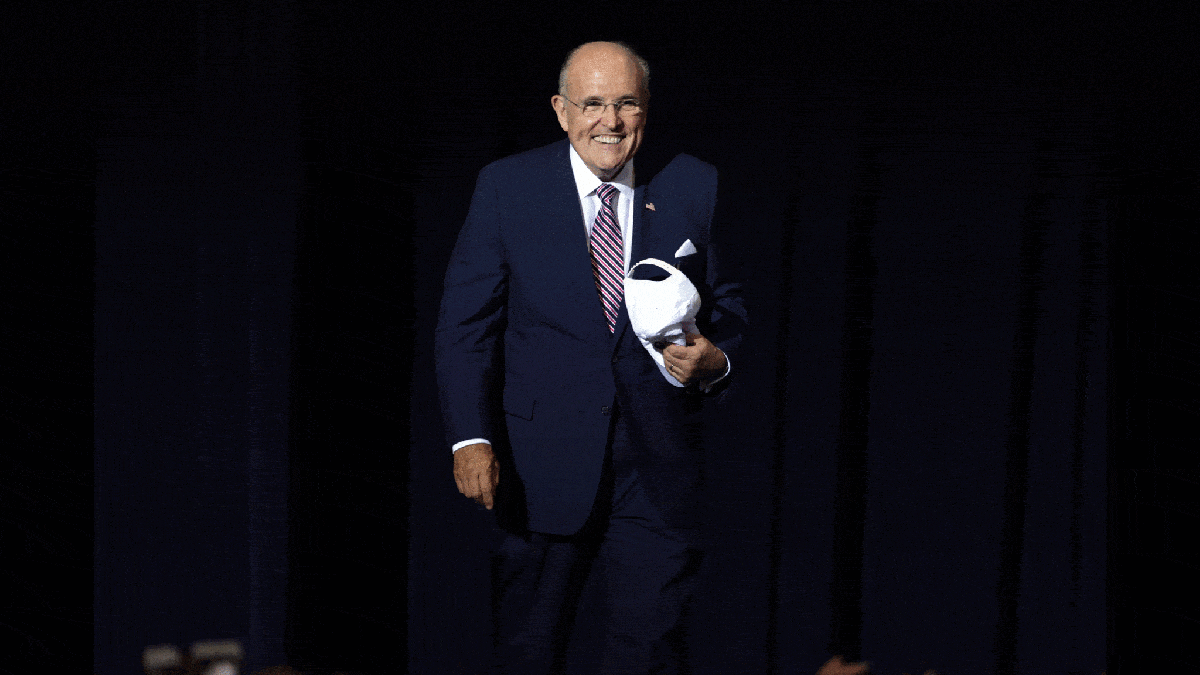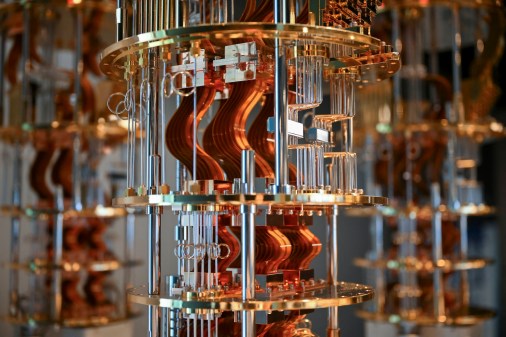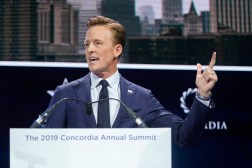Rudy Giuliani has had virtually no input on U.S. cybersecurity policy

Eight months ago, Rudy Giuliani was named a top adviser to President Donald Trump on cybersecurity matters. Yet, former and current U.S. officials say since that declaration, Giuliani has contributed little to the administration and the advisory role has yet to bear anything worthwhile.
Giuliani’s so-called “cyber working group,” a vague advisory committee officially announced by Trump’s presidential transition team in early January, is rarely in contact with White House staff. It is absent and disconnected from significant decisions, said a U.S. official with knowledge of White House affairs who spoke to CyberScoop on condition of anonymity. The source, like others in this story, declined to speak on the record citing the potential for blowback from Giuliani’s allies in government.
“From what I saw, it didn’t exist,” said one former senior U.S. official.
On May 11, White House homeland security adviser Thomas Bossert announced the rollout of a new executive order on cybersecurity, thanking a shortlist of people for their contributions to the executive order, including Giuliani. But two different former U.S. officials with knowledge of the situation said that Giuliani provided no input. This lack of guidance came in spite of multiple versions of the executive order being leaked prior to the announcement and a cohort of private sector technology companies calling the White House for information about it.
The executive order had been in the works for months, even before Trump took office, but the release was continuously delayed. Technology companies interested in influencing the executive order, which included several large cybersecurity companies, were never contacted by Giuliani even though the administration touted him as leading the only private-public cybersecurity partnership that weighed in on the order.
Trump’s presidential transition team stated in January that the former New York City mayor’s role would involve “sharing his expertise and insight … concerning private sector cybersecurity problems and emerging solutions developing in the private sector.” Sean Spicer, then the top spokesman for the transition team, also said Giuliani would offer some help with the White House’s 90-day cybersecurity plan, which has yet to come to fruition.
Giuliani disclosed some of his original plans for the role in an interview with the hosts of Fox News’ “Fox & Friends,” a program which Trump is known to closely follow. At the time, he said he would largely act as a facilitator of conversations between private sector companies and Trump.
Multiple former U.S. officials described Giuliani’s cyber working group to CyberScoop as a “business development opportunity” for the former politician’s New York City-based consulting firm Giuliani Partners. While missing from negotiations in D.C., Giuliani has participated in private briefings with company executives sporting the title of leader of the cyber working group.
The result of these meetings or whether they were relayed to Trump remains unclear.
“From the beginning, it always seemed like there were legal red flags to this thing. At least that was my impression,” said one former U.S. official. “The idea of the cyber working group in itself probably didn’t cross a red line, legally, but it always seemed weird to me.”
Shortly after Trump’s inauguration, the White House planned a press-friendly cybersecurity meeting, where cameras would be allowed in the room with Giuliani and other leaders from government. On Jan. 31, reporters joined Giuliani, NSA Director Adm. Michael Rogers, then-Homeland Security Secretary John Kelly and former national security adviser Michael Flynn, among others.
Giuliani acted as the apparent host, speaking for the most time in the open session, and calling on others to address Trump. Originally, the plan was for the executive order to be announced that same day, with Giuliani featured in D.C. as a significant contributor. But the announcement was delayed in favor of other news as Trump announced his pick for the Supreme Court later that night.
The controversial politician also appeared alongside Trump, Bossert, former NSA Director Keith Alexander and energy sector leaders for another meeting in June. The purpose of that gathering, according to a readout offered by the White House’s communications office, was for Trump to communicate his administration’s willingness to build and improve public-private cybersecurity partnerships. This meeting was also not organized by Giuliani.
Attempts to contact associates of Giuliani’s firm went answered. Giuliani Partners appears to no longer run a dedicated website with available contact information.
Although Giuliani’s influence has been lacking so far, that could easily change, a former official said. “All it would take is a phone call straight to the president … if he wanted it, you know they’re good friends, it would happen quickly.”
Giuliani was an early ally of Trump and is a longtime friend. He was rumored to be in the running for Secretary of State, but ultimately remained in the private sector. Observers were surprised to see Giuliani be named as a key cybersecurity expert to the president given his apparent lack of experience. Giuliani is a lawyer by trade, not an engineer, programmer or intelligence community insider.






